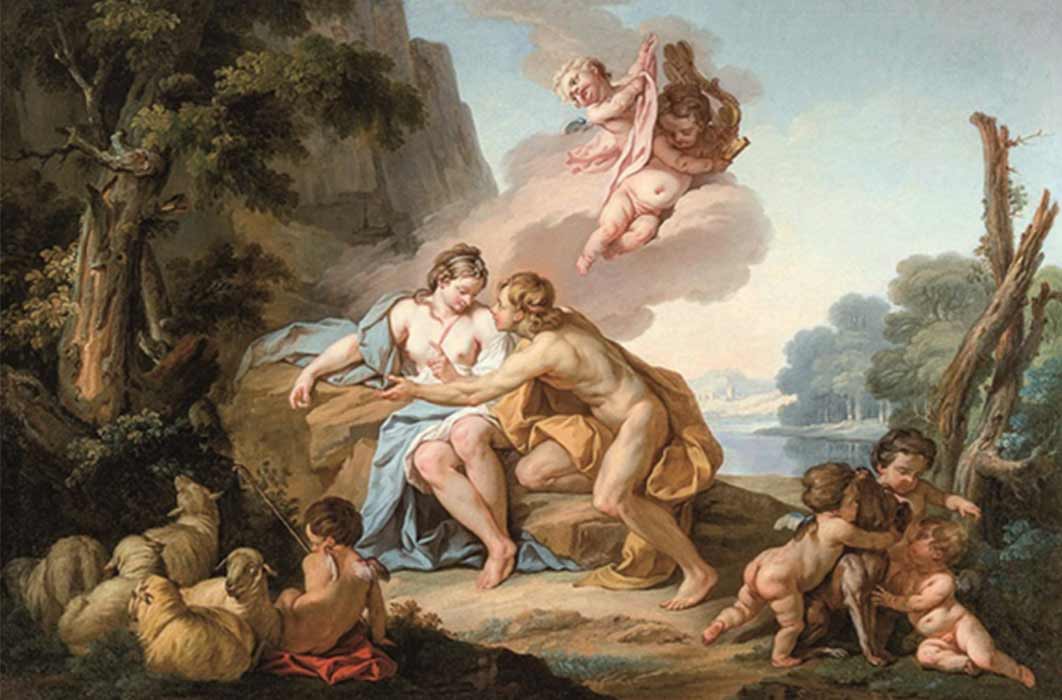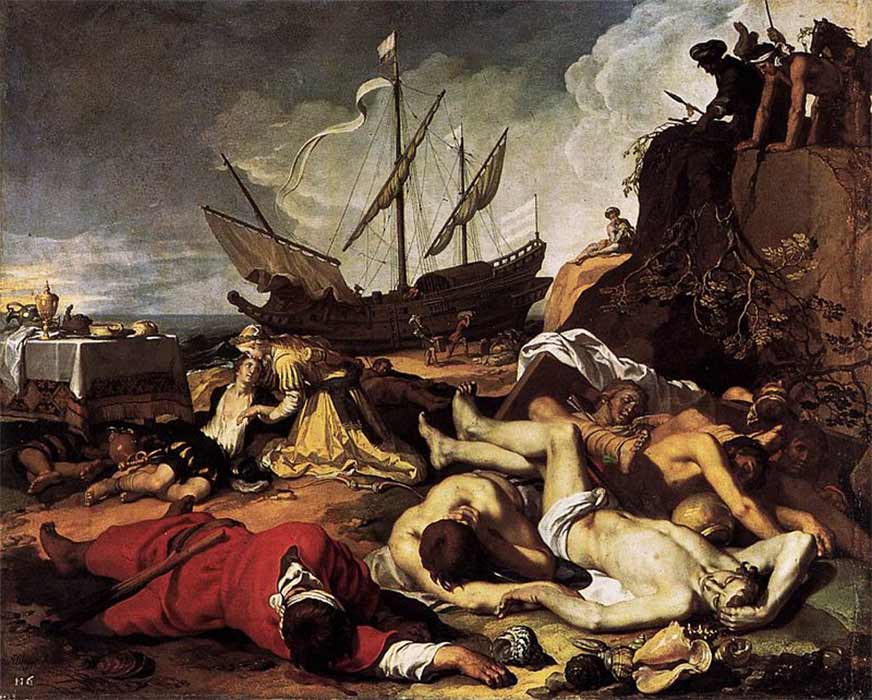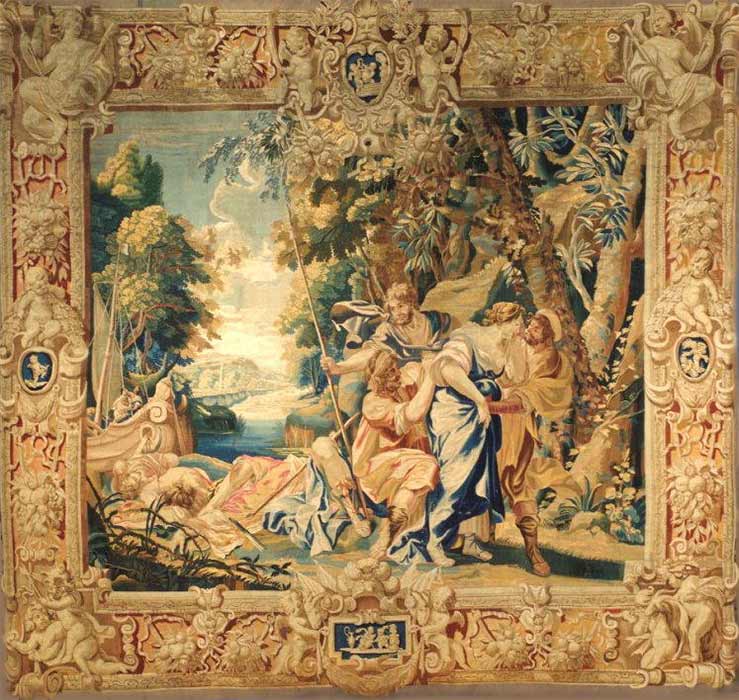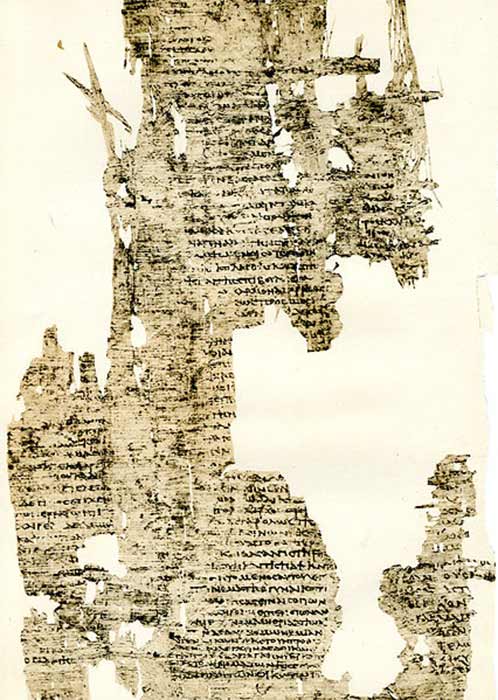
Ancient Trashy Erotic Historical Romance Novels Survived The Passage Of Time
The popularity of trashy romance fiction with pirates abducting beautiful virgins and selling heroes as slaves, mistaken identities, shipwrecks, lust, lost lovers reunited and happy-ever-after-endings existed in even antiquity, although it was disapproved of by respectable society. The last literary form to emerge from antiquity was long-prose-fiction focusing on romantic love. Unfortunately, given the Greeks' and Romans' reverence for tradition, this was not originally approved of, as only a few references to these ancient works survived, but they would later evolve to what is known today as novels. Chariton of Aphrodisias in Epistle 66 of Pseudo-Philostratus referred to them as follows: "You think the Greeks will remember your words when you die, but what does someone who is a nobody in life become when he is dead?" Another reference to the romance novel is found in a letter from the Emperor Julian (331 – 363 AD) to his high priests, urging them to avoid reading these proses, because they were written against a historical backdrop and, since they were not historical documents, they could mislead the unsuspecting reader.

Shipwreck of Charikleia and Theagenes by Abraham Bloemaert (1625) (Public Domain)
Clearly, the ancient Greeks did not consider long-prose-fiction (henceforth referred to as novels) a well-respected genre in literature. Yet, the Greek novels would have fitted into Roman society. Writers Apuleius and Petronius, the authors of Metamorphoses and Satyricon respectively, led sensational lives that were evidently quite high-profile, as their lives were documented in other texts. Petronius is assumed to have been a well-known figure in Nero's court, referred to by Tacitus as a man of "sophisticated extravagance". Apuleius was also well-known in Roman Africa as a philosopher and rhetorician. According to his own defense speech, which may be fictitious but sensational nonetheless, he was once accused of using magic to attract the attention of a wealthy widow. Both authors lived lives worthy of a novel although these would have contained passages unfit to be read out aloud to children due to their explicit sexuality, but would have guaranteed them an enthusiastic readership elsewhere.

"Chariclea Led Away by Pirates" a tapestry from the Paris workshop of Raphael de la Planche based on design by Simon Vouet. (Public Domain)
Degenerate Ancient Texts Inspiring Modern Fiction
The works of Apuleius and Petronius have easily been assimilated into the genre of the English novel. The reputation of the ancient Greek novels did not improve in the eyes of 19th-century readers, who regarded them as texts from the degenerate East. Also in the 19th century, Latin novels were considered debauched and from a broadly Christianizing context were viewed as signs of the Roman Empire's moral and social decline. However, this is not to say that these stories were completely ignored. The Tale of Cupid and Psyche by Apuleius, a second century Numidian Latin-language prose writer, is translated in Walter Pater's novel Marius the Epicurean (1885). The original title of F. Scott Fitzgerald's The Great Gatsby was Trimalchio in West Egg, after Cena Trimalchionis (The Dinner Party of Trimalchio), an extended scene in Petronius' Satyricon from the late first century AD. To this day, as many novelists, artists and filmmakers have proven time and time again, to depict a Roman orgy, for example, is a particularly effective way to shock the audience, generate water-cooler debates and assert moral superiority.

A second or third century papyrus of Chariton's Callirhoe. (Public Domain)
Five Greek novels, written between the first and fourth centuries, survive in nearly complete forms, among the fragments of over 20 surviving ancient Greek romantic books. They are Chaereas and Callirhoe from the mid-first century, Leucippe and Clitophon from the second century, and Daphnis and Chloe, The Ephesian Tale, and The Ethiopian Tale from the third century. Although there is no word for ‘novel’ in ancient Greek, all five Greek texts contain elements that can be associated with modern romance novels today. They were also written in a developed literary language with many echoes of earlier literature. This implied (or required) an educated audience who had knowledge of the history of love stories dating back to the saga of Helen of Troy as well as those who were worldly enough to understand the references contained in them about philosophy, rhetoric and historiography.




